US Congress Considering Global Internet Freedom Bill
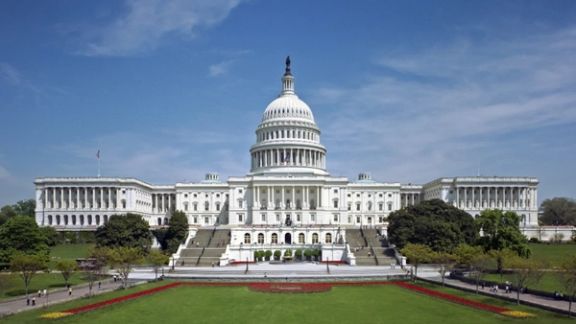
The Senate Foreign Relations Committee is considering a bill to support global Internet freedom, following government disruption of access in Iran amid protests.

The Senate Foreign Relations Committee is considering a bill to support global Internet freedom, following government disruption of access in Iran amid protests.
Iran International has reviewed a copy of a draft of a bill, which is being circulated among Senators on foreign relations committee. The bill is not named, and it is not on the Committee’s agenda calendar yet.
Sources familiar with US Government Internet freedom agenda told Iran International Congressional correspondent Arash Aalaei that there has been solid support in US Congress lately for Internet freedom, since the uprising in Iran, to provide free and accessible internet connectivity to Iranians.
After protests began in mid-September the Biden Administration pledged to help the people in Iran to circumvent Internet filtering as well as providing alternative methods of connectivity as opposed to traditional land and phone line internet.
The bill does not include any mentioning of any specific countries, but it mandates the Secretary of State to provide a comprehensive strategy to support global free internet, prioritizing countries and regions that are being repressed by continuous shutdowns of Internet.
The Iranian government has a two-decade old policy of restricting content that can be accessed on the Internet and during protests disrupts connectivity to prevent information sharing as it uses brutal methods to suppress the people.
Sources told Iran International that the bill is already being discussed by the Senate foreign relations committee members and has strong bipartisan support.
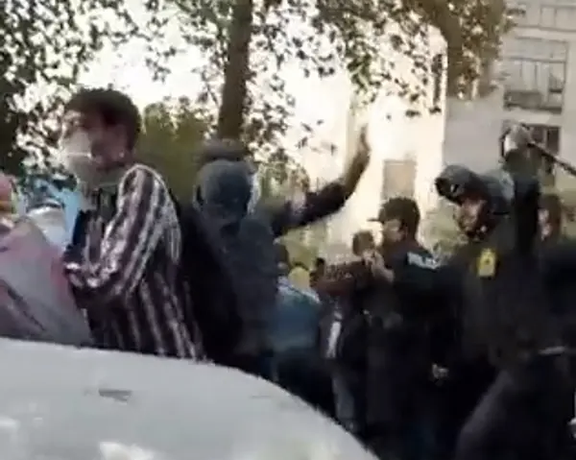
A group of nearly 200 Iranian-born lawyers in Canada have called on Prime Minister Justin Trudeau to support the uprising of the Iranian people against the Islamic Republic.
In a letter on Thursday, they said, “As lawyers of Iranian descent, we can attest that the movement in Iran, with women at its forefront, is of the kind that in recent history has paved the way for the adoption of fundamental freedoms such as those enshrined in the Universal Declaration of Human Rights and the Canadian Charter of Rights and Freedoms -- a movement that must be supported by all proponents of the free world.”
Describing Canada as the home to the second largest Iranian diaspora, they said the country can serve an important role in supporting the people of Iran. “Iranians are desperate to restore their access to the internet to maintain effective communication among themselves and to keep the world informed of the atrocities being committed by the Iranian government.”
They urged the Canadian government to immediately form “a task force with a mandate to review obstacles to internet connectivity in Iran and to devise practical mechanisms that can broaden internet access.”
The lawyers said such an initiative can bring about the involvement of many NGOs and non-profit organizations that can assist in this endeavor, but “are not currently aware of means and modalities to do so.”
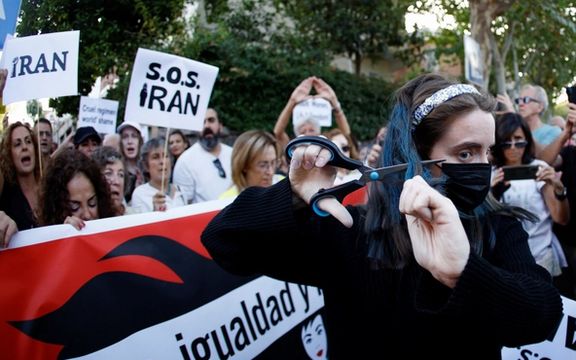
The European Parliament adopted a resolution Thursday condemning Mahsa Amini’s killing in Iran and voiced support for protests demanding change in the country.
The resolution instructed all member states “to use the mechanisms envisaged in the EU Guidelines on Human Rights Defenders to support and protect these individuals [activists, protesters], in particular women’s rights defenders and EU-Iranian dual nationals.”
Iran’s foreign ministry Friday dismissed the resolution calling it “baseless and worthless” blaming extremist elements for pushing a campaign against the Islamic Republic.
On the same day, announcing new sanctions on some Iranian officials engaged in suppressing protests, US Secretary of State Antony Blinken said Washington will keep the pressure on Tehran.
“The United States will promote accountability for all those who direct and support actions that deny the people in Iran their rights to freedom of expression and of peaceful assembly. Today we designated seven security apparatus leaders responsible for the crackdown,” Blinken tweeted.
The United States on Thursday imposed sanctions on seven Iranian officials over the shutdown of internet access and the crackdown on peaceful protesters.
The US Treasury Department in a statement said it imposed sanctions on Iran's minister of interior, Ahmad Vahidi; Communications Minister Eisa Zarepour; and Vahid Mohammad Naser Majid, the head of the Iranian Cyber Police, among others.
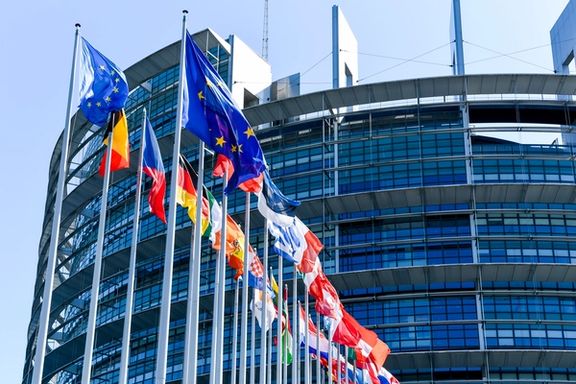
"The United States condemns the Iranian government’s Internet shutdown and continued violent suppression of peaceful protest and will not hesitate to target those who direct and support such actions," Under Secretary of the Treasury Brian Nelson said in the statement.
But White House NSC coordinator John Kirby told the CNN that the administration is still committed to the revival of the 2015 nuclear deal, which would release tens of billion of dollars for Iran. He told CNN, “We still believe diplomacy is the best path forward to prevent Iran from achieving nuke weapon. But we’re not close to a deal right now. I’d not be thinking there's sanctions relief in the offing anytime soon for Iranians right now.”
Iranian activists and other have been urging the Biden Administration to formally withdraw from the nuclear talks in the light of Tehran’s intransigence and its violent crackdown of protesters, especially the killing of young women.
US Envoy for Iran Rob Malley told NPR that "What US wants is a government in Iran that respects people's fundamental rights. It's not a policy of regime change. It's a policy of backing people who're protesting peacefully, because they want to be able not to wear a headscarf yet face oppressive system."
The European Union and its member states are putting significant pressure on Iran, by foreign ministers telling Tehran to stop its mistreatment of citizens. However, Iran’s foreign minister Hossein Amir-Abdollahian has dismissed such calls, insisting that women are protected in his country and others should not intervene.
Addressing the European Parliament October 4, EU foreign policy chief Josep Borrell said that along with European Council President Charles Michel he raised the issue directly with Iranian President Ebrahim Raisi and called for accountability for the death of Mahsa Amini and restraint in the government’s reaction to the demonstrations.
He stressed that member states will continue to consider all the options at their disposal, including “restrictive measures,” at the next Foreign Affairs Council to address the killing of Mahsa Amini and the way Iranian security forces have been responding to the demonstrations.
“Unfortunately, it did not happen," Borrell said, adding that “Numerous reports clearly show that the response of Iranian security and police forces has been disproportionate and resulted in tens of dozens of lives lost.”
Expressing admiration for demonstrations he said, “These are facts, these are not opinions. These are facts. In the streets of Iran, the repression of the demonstrators has left behind tens of people killed.”

Iranian political activist Emad Haydari has been killed in the custody of Iran’s Revolutionary Guard’s Intelligence unit in the southwestern city of Ahvaz, Iran International has learned.
According to the obtained information, the IRGC has told his family that Emad died of a heart attack inside prison.
Haydari (Heidari) was arrested about 10 days ago by security forces in his home in Ahvaz in the southwestern province of Khuzestan, without any apparent charges. A few days later the security forces stormed his home again and confiscated all the mobile phones of his family members. In the following days, they informed one of the members of the family that he died of heart failure.
They also asked the family to bury his body without any media presence and without a large funeral service, and also arrested two of his brothers as well as one of the family’s elders.
Since the beginning of the current wave of protests across Iran, the authorities have killed many people and resorted to tactics to cover up their crimes. The Islamic Republic also officially announced on Friday that Mahsa Amini – the 22-year-old woman whose murder in police custody sparked the uprising – died of a heart attack despite copious evidence that indicate she died due to brain trauma caused by blows to her head.
In some cases, such as Nika Shakarami and Sarina Esmaeilzadeh, the authorities claimed they mysteriously fell out of buildings, and aired forced confessions of some family members to support their narrative.
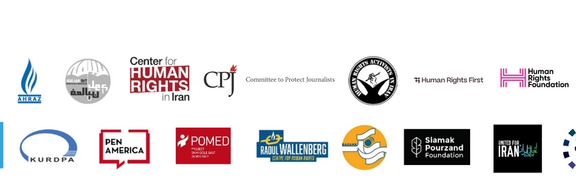
A group of about 20 human rights societies and NGOs have written to US President Joe Biden, calling on him to fulfill his promise of confronting the authoritarian regime of the Islamic Republic.
In the letter, released on Friday, they said the death of 22-year-old Mahsa (Jina) Amini in police custody in September has set in motion massive nationwide protests and strikes in at least 103 cities and towns across Iran’s all 31 provinces, with scores of people killed and many more injured during the government crackdown on the ensuing protests so far.
They enumerated several tragic events that took place since Mahsa’s death such as the Bloody Friday in Zahedan, and the hours-long siege of Tehran’s Sahrif University that led to the death and arrest of many students, and expressed gratitude over the US government’s actions to date, including expanding sanctions exemptions to allow Iranians to use cloud computing and circumvention technologies, sanctions on Iran’s “morality” police, and expressions of solidarity with the women and people.
Noting that “The Iranian people need the support of the United States and the entire international community to attain their rights and freedoms,” they called on Biden to “lead in concert with democratic allies at the United Nations in Geneva diplomatic efforts to establish an urgent special session immediately after the conclusion of UNHRC’s 51st regular session to bring governments into a debate about addressing the current violent crackdown and Iran’s ongoing human rights crisis.

An Iranian coroner's report into the death of Mahsa Amini said she did not die due to blows to the head but from multiple organ failure caused by cerebral hypoxia.
The death of 22-year-old Amini while in the custody of Iran's morality police has ignited three weeks of nationwide protests. Young women and men have simply rebelled against enforcement of restrictive Islamic rules on their lifestyles and demand an end to religious government.
Her father has said she suffered bruises to her legs and has held the police responsible for her death.
The coroner's report said her death was "not caused by blow to the head and limbs". It did not say whether she had suffered any injuries. The report did say she fell while in custody due to "underlying diseases".
Iran International obtained Amini’s brain CT scan from hospital sources in September that shows serious injuries to her skull. Hospital staff also confirmed that she was in a coma upon arrival. Fars news agency affiliated with the Revolutionary Guard confirmed that the CT scan belonged to Amini. Moreover, her photos in the hospital show her bleeding from the right ear, a definite sign of brain injury.
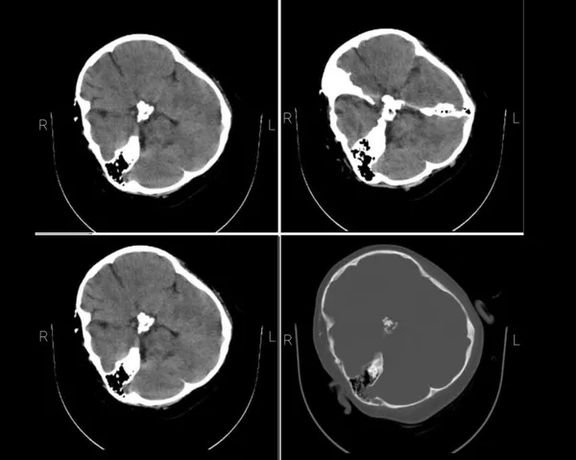
"Due to the ineffective cardio-respiratory resuscitation in the first critical minutes, she suffered severe hypoxia and as a result brain damage," the coroner’s report said.
However, Iranian Hengaw Human Rights Organization responded in a tweet that Iran’s Legal Medical Organization is not an independent entity and its opinion in politically sensitive cases are issued under the supervision of its security department. “The assessment issued by this organization in Mahsa Amini’s case is devoid of any credibility and legal proof,” Hengaw said.
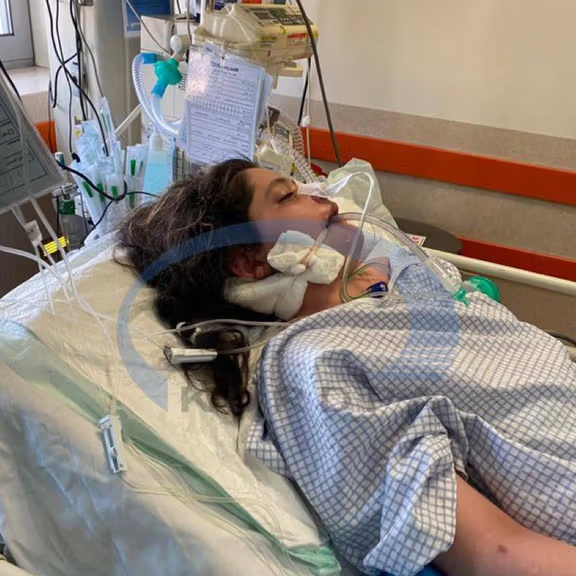
When Amini’s incident became public in mid-September, Iranian officials tried to claim that she had previous brain problems or chronic health issues that led her to lose consciousness during her arrest. As evidence emerged that her skull was broken, they stopped making such claims for a while, but after using brutal force against protesters, they are now sticking to their guns, denying wrongdoing.
That tactic also relates to cases of at least two teenage girls who were killed during protests. Officials claim that Nika Shakrami and Sarina Esmailzadeh both fell from rooftops and died. In case of Esmailzadeh, Amnesty International has verified that she was beaten on the head by heavy batons by security forces and taken to hospital by her friends but she died before any medical help was administered.
Activists have called for nationwide protests on Saturday and government attempts to falsely explain away these deaths may further inflame popular anger. But the Islamic Republic has rarely accepted responsibility or guilt in similar situations.
After three years, the government has not issued a report on protests in November 2019 when at least 1,500 demonstrators were gunned down or otherwise killed by security forces who were ordered to stop the unrest at any cost.
Amnesty International said September 30 that a similar order was issued at the onset of the current protests.